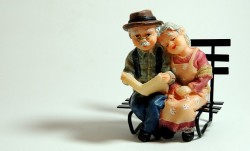 People in their fifties and older are looking for literature with protagonist that they can relate to. They are looking to move on from books with young protagonists and instead are in search of a story that reflects their current emotional journey. This has sparked a new category of literature called ‘Boomer Literature’.
People in their fifties and older are looking for literature with protagonist that they can relate to. They are looking to move on from books with young protagonists and instead are in search of a story that reflects their current emotional journey. This has sparked a new category of literature called ‘Boomer Literature’.
Although Boomer Literature may feature a protagonist that is older in years, it more often focuses on new beginnings. It embraces the idea that you can reinvent yourself no matter how old you are. This new category is not so different from Young Adult Literature, just with a new wrapper of experience.
The protagonist in both categories finds themselves discontent with the current state of their life. They’re both dealing with new, and often annoying, bodily functions (puberty vs. aging), and they both desire to reinvent who they are and live their life to the fullest. The only thing that has changed is the age of the protagonist.
Universal Message of New Beginnings
This new category seems to have only one thorn in its side, its name This category deserves a title that’s universal. The most important gift that literature imparts is its ability to connect people and develop our ability to empathize. The current name provides a selective advertisement to one generation, while so many people can relate to the universal themes explored in this category.
Boomer Literature is not so different from Young Adult Literature, just with a new wrapper of experience.
Everyone is aging. We find ourselves not even noticing the time as move ever forward. We look back at our past years with melancholy and love as we think of all the things we have done and the things we wish to still do. Everyone is just on different scales of the spectrum, moving towards our inevitable mortality, a concept that’s difficult to face. Because we are still so afraid of our mortality we often miss out on the opportunity to appreciate those who have lived through many of life’s experiences and are reaching towards the last of their beautiful years. We have a tendency to write them off, but this new category of literature is challenging our preconceived notions that you can’t begin again. You can teach a dog any trick it wants, no matter its age.
The idea of new beginnings is universal as well. New beginnings are constantly interspersed throughout our lives. There is of course the greatest beginning, our birth. There are the moments when we leave our parents home for college and become our own person. There are the new beginnings of marriage, starting a full time job, buying a house, beginning a family. There is the new beginning created when you lose someone important and you find it changes you irreversibly. Traumatic injuries and unexpected life changes open the door for new beginnings. And of course the onset of the last years of our lives. We begin to ask questions: Did I do all the things that I wanted to do? Was I the person I wanted to be? Is it too late to change?
In A Name
Because this category of literature is universally relatable, like so many good genres are, it makes it even more important that the name is relatable and truly indicative of its inherent qualities. Ideally, the name should speak to more generations than just the Boomer Generation for many years to come.
A couple ideas for a new name might be New Beginnings Literature or Golden Years Literature. My personal favorite is New Beginning Literature. Unruly Guides would love to know what your favorite is or if you have a new suggestion. Leave a comment below!
I think the future looks bright for this new category. We relate to the familiar themes, yet they push us to open our minds and stretch our limits of acceptance. If you’re looking for books that fit this theme here are a few suggestions: